
It was nearing the end of Yucatan’s long dry season, April, 2013. Dark clouds, thunder, and lightning began to threaten my walk past Santiago Plaza. I knew I wouldn’t make it back to the house we had recently purchased (after selling ours up north) even though it was only five blocks away. So I sat in the sheltered market and enjoyed lunch, and the hard rain. It would give opportunity to examine our new digs for weather worthiness. Thank heavens we got to do this before departing!
I arrived about ten minutes after the rain ceased to find numerous leaks. I’ve done major roofing and plumbing myself, on properties we’ve owned. But flat masonry roofs were new to me. So I was somewhat alarmed to find twin bathtubs of water on the roof.
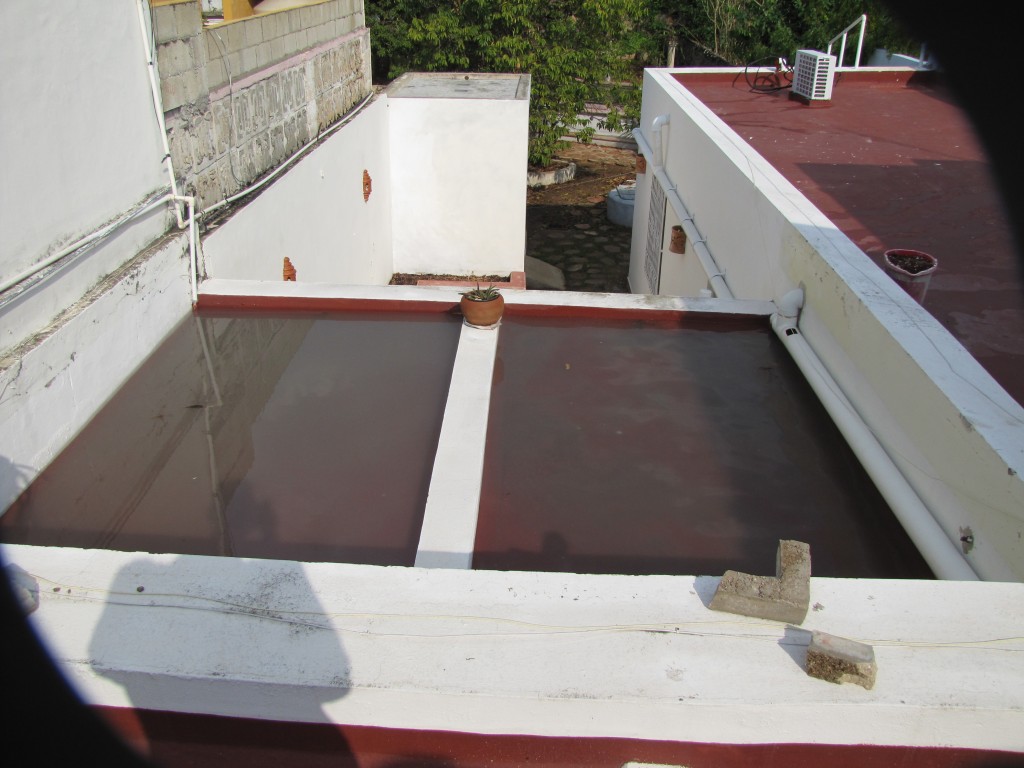
But the skill set required more from the plumbing department than the roofers’ supply: Trace the source. Find the exit drain. Where is the blockage? Ask the right question: Why didn’t these bathtubs emptying themselves, as designed?
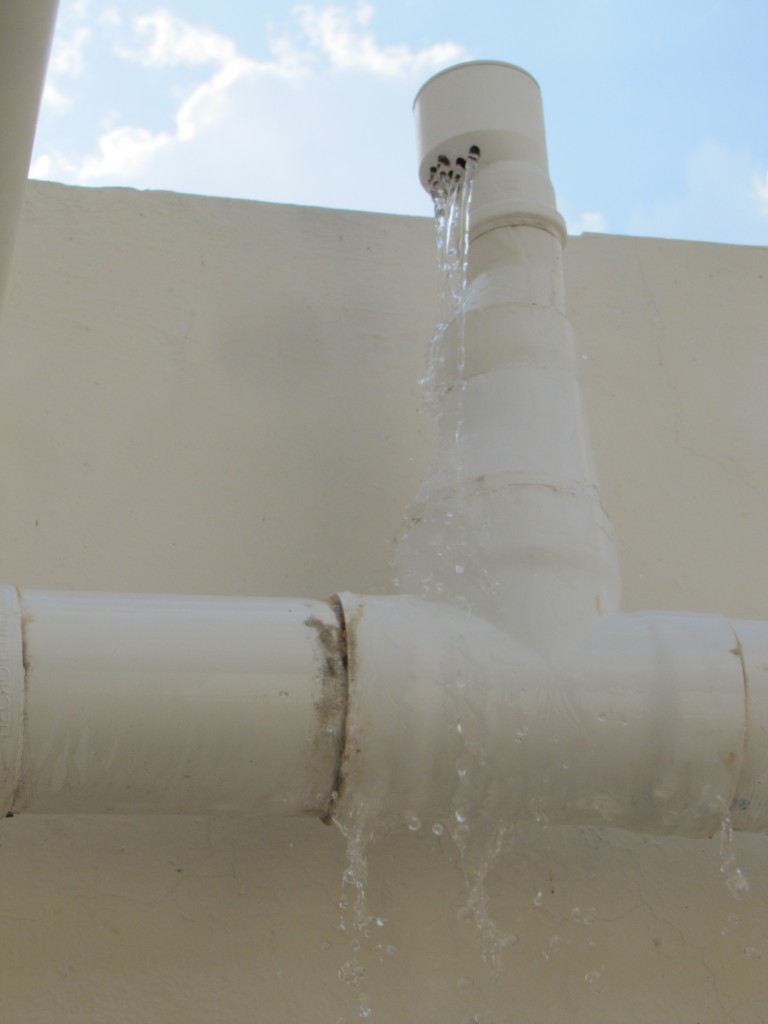 In tracing the intended flow, I noticed a breather tube was discharging water as if it were a shower, rather than breathing to allow the pipe to empty. Yet there was no water coming out the downspout. Clearly the path was blocked. But where? There was about 30 feet of pipe between the breather and the end of the discharge pipe. And there were several tributaries into the line – time now to guess where to cut. Fortunately a previous owner left a hacksaw behind. So I began to do surgery on the five inch plastic line, hoping I could define the problem. The quest: where does the line transition from wet to dry, since water isn’t coming out the exit? I started to make incisions in the line. The first two at a corner were wet and under gravity pressure. The third incision was dry. Ok, back up and make another cut, a big opening, just behind the dry one. Bingo!
In tracing the intended flow, I noticed a breather tube was discharging water as if it were a shower, rather than breathing to allow the pipe to empty. Yet there was no water coming out the downspout. Clearly the path was blocked. But where? There was about 30 feet of pipe between the breather and the end of the discharge pipe. And there were several tributaries into the line – time now to guess where to cut. Fortunately a previous owner left a hacksaw behind. So I began to do surgery on the five inch plastic line, hoping I could define the problem. The quest: where does the line transition from wet to dry, since water isn’t coming out the exit? I started to make incisions in the line. The first two at a corner were wet and under gravity pressure. The third incision was dry. Ok, back up and make another cut, a big opening, just behind the dry one. Bingo!
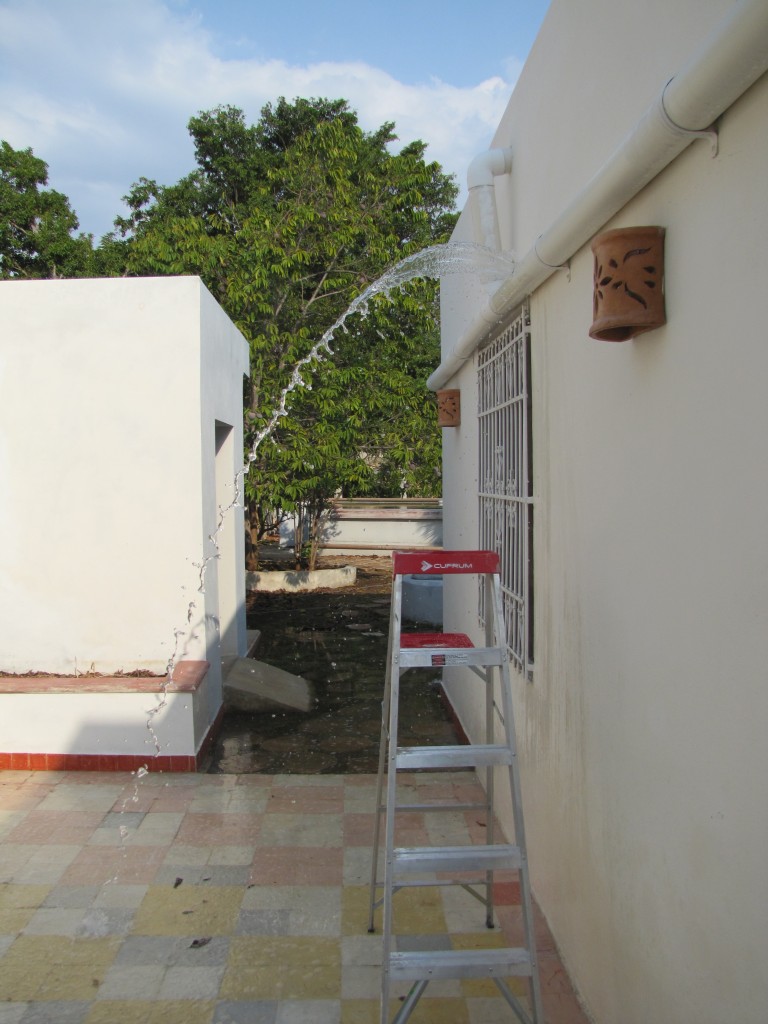 It’s a gusher! So I let it gush, and went looking for a rod to fish with. And here’s what I caught (pay no attention to those knobby knees):
It’s a gusher! So I let it gush, and went looking for a rod to fish with. And here’s what I caught (pay no attention to those knobby knees):
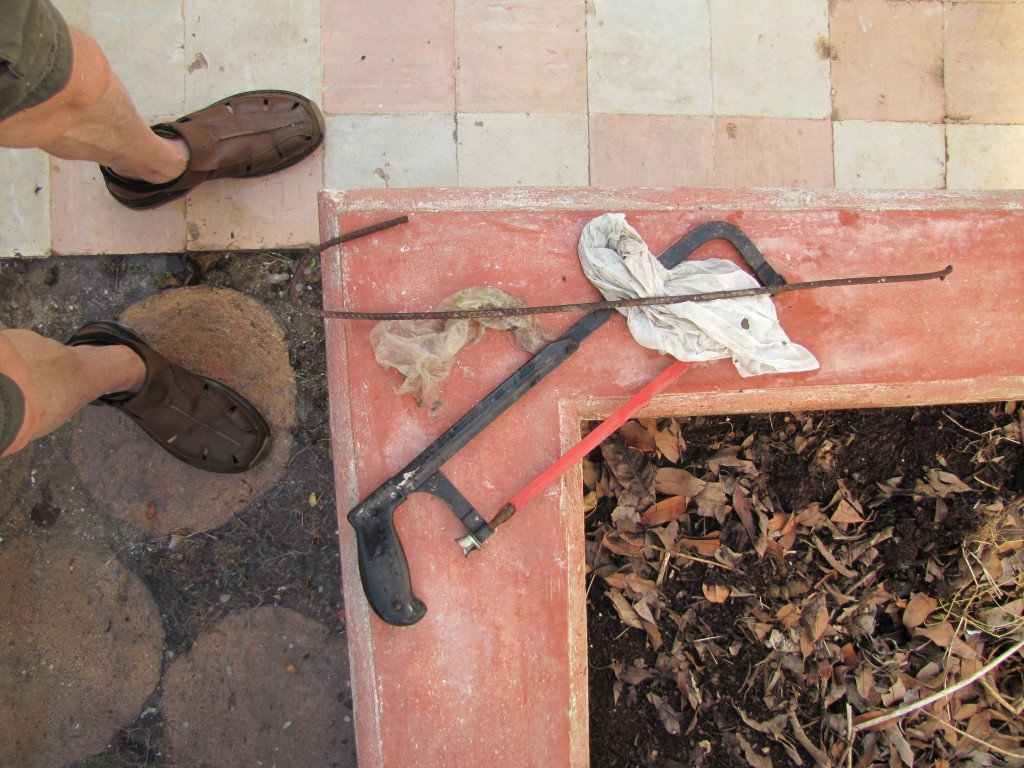
Two flying jellyfish (plastic bags)! They had lodged themselves in the pipe after blowing onto the roof and floating into the intake drain, snagging inside the horizontal portion of line. (Plastic rubbish is the worst, as it never rots.) I was so grateful that I didn’t get a call from our property managers after leaving town, telling us that our ceiling was leaking and our house was flooding. Instead the reports, after much rain over the wet season, have been dry (well, actually, humorous, as Billy is anything but dry). Whew, what a relief! ¶ A few days later I invited Rolando, our electrician, to do some work. He is also a plumber, so I showed him the gutter hole, and asked him how to patch it, me having never seen a plastic pipe clamp before. He cut off about six inches of old plastic tube, also left behind, and slit it lengthwise, telling me to flex it open, and glue it over the hole I had made. (Brilliant, Rolando.) Done!
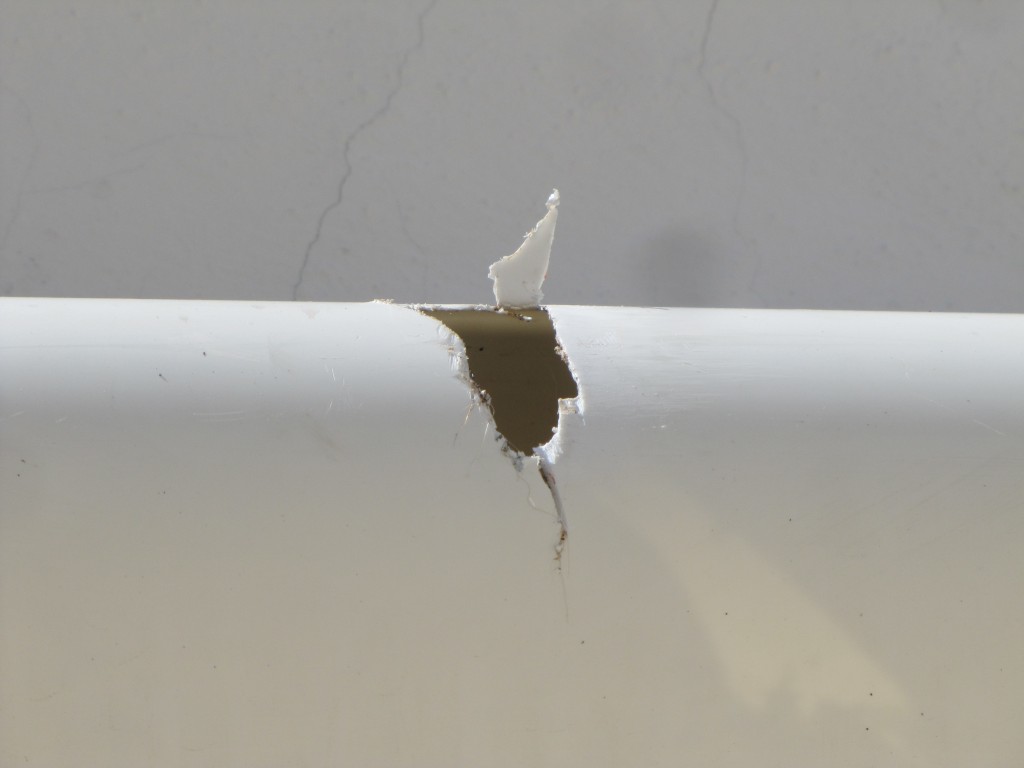
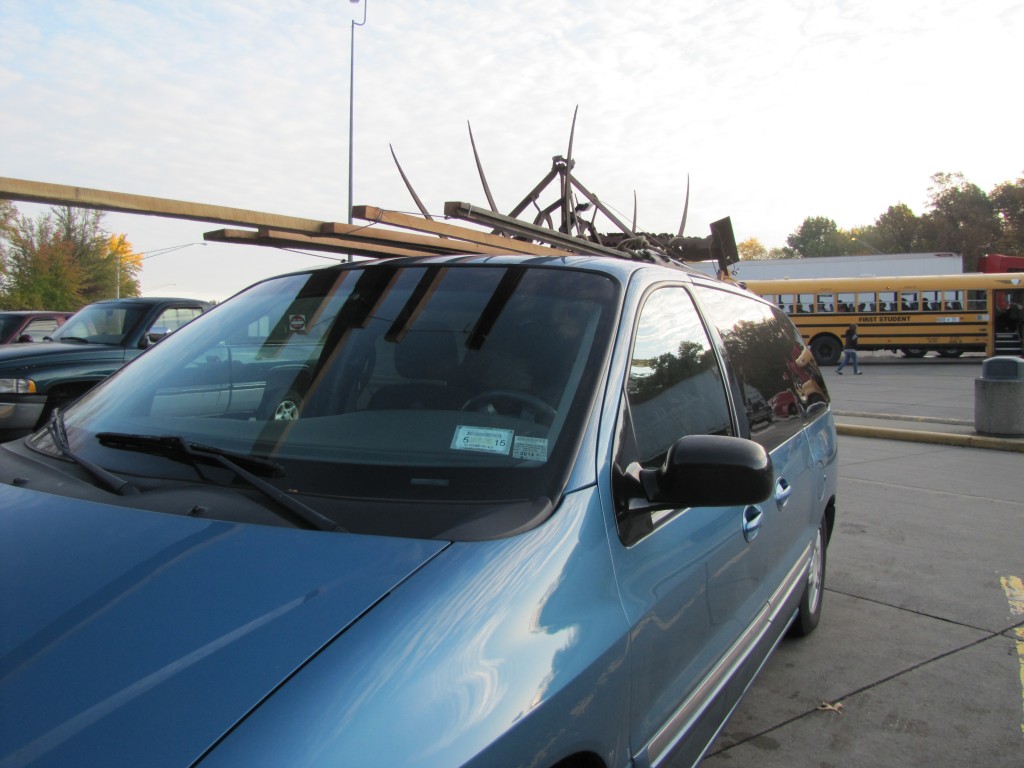 Deer season is near. Believe it or not, yesterday, while driving from Buffalo, New York to Merida, Yucatan, we went thru a town named Bucksnort, Tennessee. And if you consider the rack atop our vehicle, it’s a miracle we weren’t shot at by bow hunters! What you’re seeing is a hayfork from our barn, inverted on the roof of our van. (If you’re confused, there are two items on the roof.) I’ll explain the second item in a followup post, eventually. A third item is a light pole which is not on the roof. Pay no attention to those boards which are merely cushioning the fork so as not to damage the roof.
Deer season is near. Believe it or not, yesterday, while driving from Buffalo, New York to Merida, Yucatan, we went thru a town named Bucksnort, Tennessee. And if you consider the rack atop our vehicle, it’s a miracle we weren’t shot at by bow hunters! What you’re seeing is a hayfork from our barn, inverted on the roof of our van. (If you’re confused, there are two items on the roof.) I’ll explain the second item in a followup post, eventually. A third item is a light pole which is not on the roof. Pay no attention to those boards which are merely cushioning the fork so as not to damage the roof.











